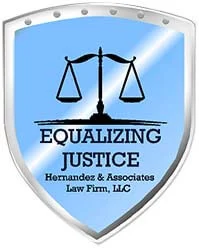COMMON TRUSTS THAT YOU MAY WANT IN YOUR ESTATE PLAN
There are a lot of ways to go about developing your estate plan. Although that should give you comfort knowing that you can custom tailor your plan to suit your needs, a lot of people find the process completely overwhelming. To them, there’s simply too much to learn and the matter doesn’t seem urgent enough to devote the time necessary to learn about all of these options.
We understand those thoughts and concerns, but now really is the time to build your estate plan. A lot of individuals wait until it’s too late to create their estate plan, which puts the future of their estate and their loved ones at risk. To help get you started, this week we wanted to quickly touch base on some of the most common types of trusts that you can utilize in your estate plan.
YOUR TRUST OPTIONS
There are a lot of trust types to choose from. Picking the right one requires you to know what each trust has to offer. So here are just a few of your options in this regard:
- Special needs trust: This type of trust allows you to leave assets to a loved one without affecting his or her ability to qualify for government benefits like Medicaid. This is because the assets that you place into the trust don’t count for income purposes when it comes to qualifying for those government programs. Therefore, this type of trust can help provide your loved one with additional financial support while ensuring that he or she receives needed medical care.
- Charitable trust: This type of trust can be used as a way to give back to the causes that you care about most. It can also provide you with tax benefits which, depending on the value of your estate, can significantly decrease the amount that your estate will have to pay.
- Asset protection trust: This type of trust is used to shield assets from creditors who may come knocking once you pass away.
- Remainder trust: This type of trust allows you to support a named beneficiary for a certain period of time with whatever is left at the end of the time period, known as the remainder, being distributed to another beneficiary. This type of trust can be helpful in a number of situations, including when you’re in a blended family.
- Revocable trusts: This is an umbrella term for a type of trust that you create during your lifetime that can be modified as time passes. It can be a great way for you to mold your estate plan as you see fit while reducing the risk that your estate will end up having to go through the probate process. It’s worth noting, though, that creditors can still access assets that are placed into one of these trusts.
- Spendthrift trust: This type of trust is meant to provide a loved one with financial support while protecting the assets from mismanagement. It does so by limiting how assets can be used or how much of the assets are distributed at a certain time. This helps ensure fiscal responsibility and that your assets will provide support for a long time to come.
FIND THE TRUST THAT IS RIGHT FOR YOU
These are just some of the most common types of trusts that are utilized in the estate planning process. But there are a whole host of others that may be available to you. Before you get overwhelmed, though, you may want to start by focusing on what you what out of your estate plan. That way, once your priorities are identified, your attorney can help guide you toward the estate planning vehicles that will get you to where you and your estate need to be.

